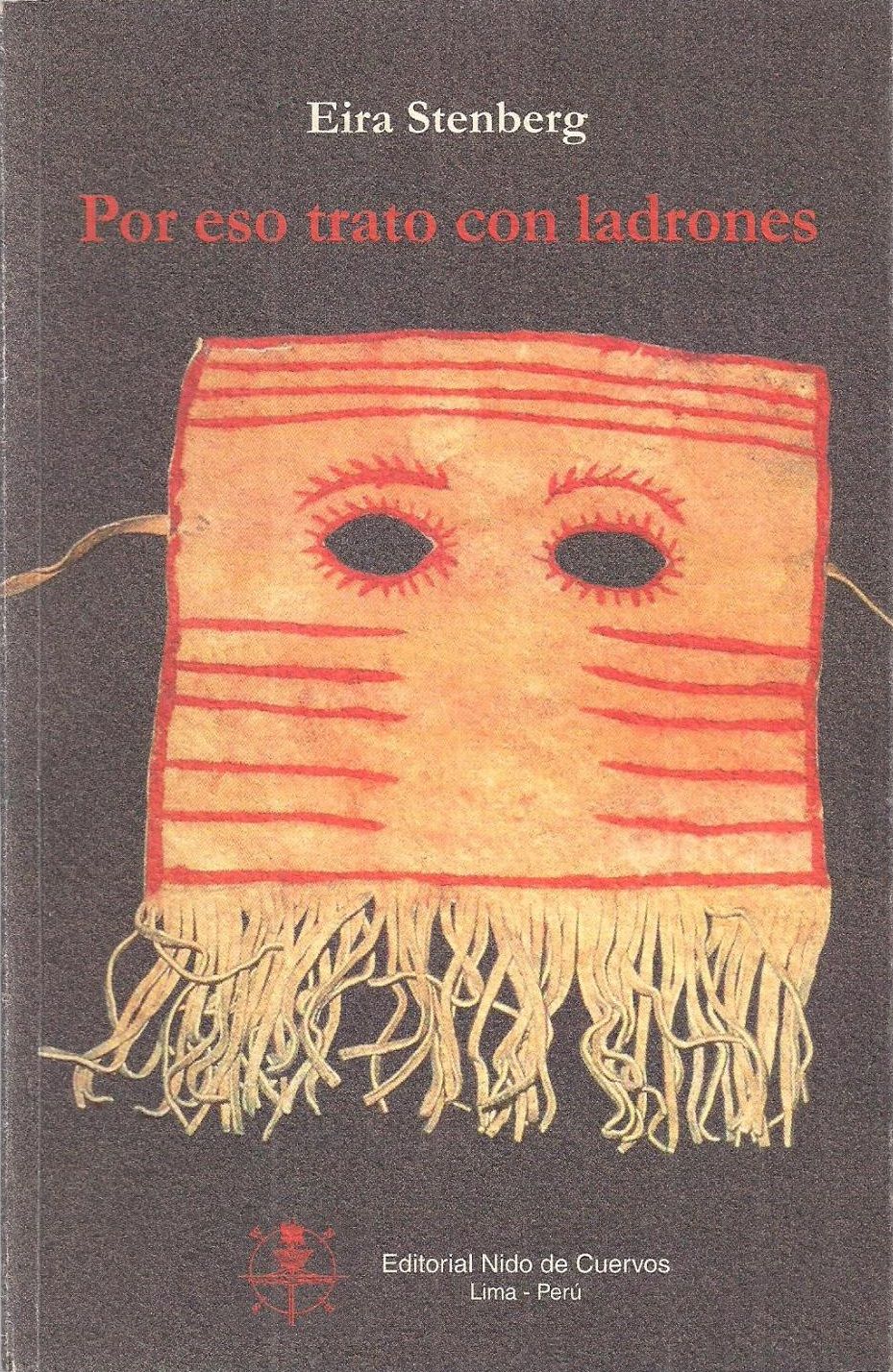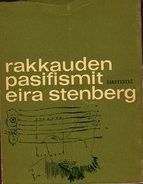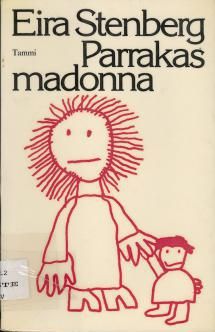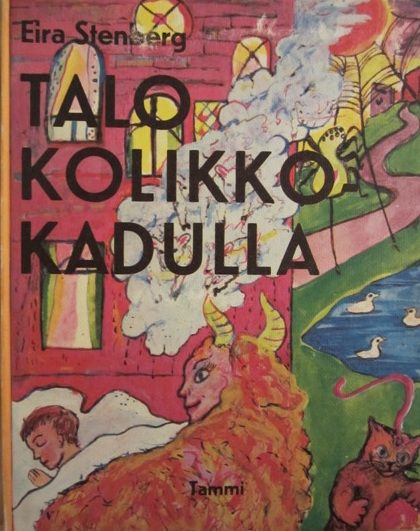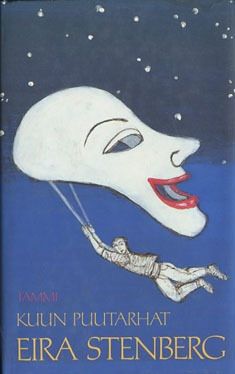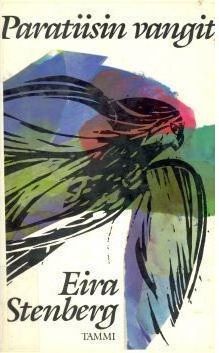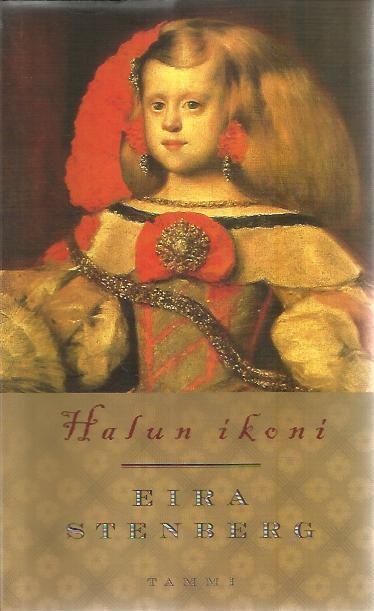En el marco del III Festival Internacional de Poesía de Lima, que organiza la Nido de cuervos y que se llevará a cabo en la capital peruana entre el 13 y 16 de abril próximo, Vallejo & Co. presenta un conjunto de entrevistas con algunos de los poetas participantes con la intención de conocerlos más a estos y a su obra. ¡Bienvenido III FipLima! ¡Bienvenida la poesía!
Por: Mario Pera
Crédito de la foto: www.koneensaatio.fi
«El sentimiento de vergüenza y
de fragilidad es la cuna de la poesía».
Entrevista a la poeta Eira Stenberg*
Mario Pera [MP]: Eira, ¿cómo te relacionaste con la poesía? Comenzaste a publicar con Kapina huoneessa (‘La revuelta en la habitación’, 1966) cuando tenías 23 años, lo que es muy joven. ¿Qué determine en ti el deseo de escribir y de publicar poesía?
Eira Stenberg [ES]: En realidad, la música es el primer arte con el que tuve contacto en mi infancia y tiene un papel muy especial en mi vida desde mi infancia. El gran piano de cola de mi padre llenaba la mitad de nuestra sala y escuché a Beethoven, Schubert y música clásica de piano; además de las composiciones de mi padre. Él componía música en el piano y yo, a menudo, lo escuchaba tocar dos canciones hermosas que él había compuesto en para la poesía finlandesa y la poesía sueca de Finlandia. Creo que ese fue mi primer vínculo con la poesía, y tal vez esa sea la razón de mi sentimiento, ya que la poesía está profundamente conectada con la música.
Cuando tenía alrededor de quince años, mi madre me dio como regalo de cumpleaños un poemario de Kaarlo Sarkia. Ese fue el primer libro de poemas que he leído en mi vida. Kaarlo Sarkia (1902-1945), quien es uno de nuestros clásicos románticos y un maestro de la eufonía y del ritmo. En su poesía la conciencia de la muerte da lugar a un amor extático por la vida en un virtuosismo formal. Este tipo de poesía, con el verso métrico, estaba fuera de moda en la década de 1950, cuando el Modernismo conquistó la poesía finlandesa. Entonces mi primer contacto con la poesía estuvo fuera de la moda. De todos modos, la sensación en su poesía me tocó y me empujó a escribir mis primeros poemas en mi diario, y también a leer la poesía contemporánea finlandesa.
Durante los años antes de escribir mi primer libro leí mucha poesía finlandesa, y los poetas más importantes para mí fueron Eeva-Liisa Manner, Edith Södergran y Paavo Haavikko. Leí también la poesía traducida de otros idiomas al finlandés, pero en esos años estaba más interesada por la filosofía y las artes visuales, también por la música clásica contemporánea, y leía más ficción que poesía.
De todos modos sentí la poesía y mi propia escritura de poesía suficientemente importante como para tratar de conseguir su publicación. Fue una gran sorpresa para mí, que mi primer libro causara tal sensación y consiguiera el Premio J. H. Erkko como el mejor libro debut de ese año. Tal vez la relación entre el anarquismo alegre y lenguaje fue algo nuevo y sorprendente.
[MP]: Estudiaste dramaturgia en Helsinki y luego un bachillerato en artes. Sabemos todos que todas las artes están vinculadas pero, ¿cómo crees que tus estudios de dramaturgia y de artes, en general, han influido en tu manera de escribir y de entender la poesía?
[ES]: Estudié dramaturgia fílmica en realidad bastante tarde. Ya había publicado tres o cuatro poemarios e intentaba, en aquellos tiempos, escribir mi primera novela. Sentí que los estudios de dramaturgia fílmica me ayudaron mucho con mi novela, porque me dieron una nueva manera de mirar el texto: era como una película. Esta actitud hizo que el libro sea muy visual y le dio una forma dramática.
Mi camino en la poesía es más complicado. Estudié también música y pintura, y ambos son parte de mi forma de ver y de escuchar el mundo. Pero en la poesía estoy en un contacto especial con el lenguaje. El sentimiento de vergüenza y de fragilidad es la cuna de la poesía. El poeta es consciente del hecho que el lenguaje no es un simple puente entre las personas, sino más bien un laberinto en el que tal vez un Minotauro nos está esperando.
Y ese Minotauro puede ser nuestro propio yo.
Recuerdo que Jean Paul Sartre dijo en alguna parte que las palabras de la poesía son animales salvajes. En mi caso también tiene que ver con mi relación con los idiomas finlandés y sueco. Mi lengua materna es el finlandés, pero la lengua de mi padre era el sueco. Mi abuela, quien se encargó de mí durante algunos períodos de mi primera infancia, nunca aprendió a hablar finlandés. Yo pendía entre ambas lenguas en esos años, que es cuando un niño aprende a hablar. Todavía recuerdo la sensación que tuve que el lenguaje es un gran misterio.
[MP]: Has sido premiada por tu poesía en muchas ocasiones. El mencionado Premio JH Erkko en 1966, el Premio Nacional de Literatura Finlandesa en 1985 o el reciente Premio Eino Leino en 2007, entre otros. ¿Estos premios han influido de alguna manera en tu poesía? Quizá el gran reconocimiento te ha abierto las puertas para una mayor publicidad, para publicar más fácilmente o para encontrar más lectores. ¿Qué crees que significan los premios para el poeta?
[ES]: Primero, y ante todo, como poeta me siento los premios me dan el conocimiento de que hay personas que entienden lo que he escrito y también lo aprecian. Esa es una sensación importante. Y si el premio se combina con dinero, es una gran ayuda para un poeta para continuar con la escritura. La poesía es una especie de lengua minoritaria, que la mayoría no suele leer, y las ediciones son pequeñas. En mi país la gente lee en su mayoría novelas.
En mi caso, el Premio JH Erkko no me abrió más fácilmente las puertas para la publicación de mi siguiente poemario, a pesar de que el premio fue muy apreciado y me dio publicidad. En esos años, en los años sesenta, había líderes de opinión muy Fuertes en el campo editorial y sus puntos de vista sobre la poesía luchaban por el poder. Ese fue un momento en que el Modernismo peleó en contra de las nuevas tendencias, por ejemplo, la poesía políticamente comprometida. Y mi segundo poemario cayó en ese campo de batalla en mi editorial. Fue gracias a la opinión de la gran poeta Eeva-Liisa Manner que mi poemario Rakkauden pasifismi (‘Pacifistas del amor’, 1967) se publicó.
En nuestros días, supongo, no hay tales peleas entre los diferentes puntos de vista sobre la poesía. Las editoriales están más interesadas en el dinero que en las cuestiones estéticas.
Tengo que especificar que me dieron el Premio Nacional de Literatura Finlandesa por mi primera novela Paratiisin vangit (‘Prisioneros del paraíso’, 1984), no por mi poesía. Pero esa es otra historia.
[MP]: Sobre tu poesía, pienso que está esencialmente ligada a temas como las relaciones hombre-mujer, los lazos familiares y la manera en que la gente juega sus roles en la familia. Hay también otro elemento interesante en tu trabajo poético, que es la búsqueda de una identidad a través de la exploración de la sexualidad y de la sensualidad. ¿En tu opinión, el arte, la poesía en particular, nos ayuda a descubrir nuestro papel en nuestras familias, en la sociedad así como a descubrir nuestra identidad? En ese sentido, ¿cuáles dirías que son los temas esenciales en tu poesía, desarrollados consciente e inconscientemente?
[ES]: Tu pregunta acerca de la búsqueda de una identidad a través de la exploración de la sexualidad y de la sensualidad en mi poesía es muy interesante, y nunca he oído sobre ello antes. Creo que es una pregunta muy profunda, ya que en todas las culturas y religiones, el tema de nuestra relación con nuestro cuerpo, sensualidad y sexualidad es esencial. Nuestro cuerpo, con sus sentimientos, deseo y comportamiento, es controlado por varios códigos y normas sociales que son parte de nuestra identidad, y que influyen en nuestra manera de pensar, sentir y comportarnos.
Debido a que hay varias maneras distintas para controlar la relación con nuestros cuerpos, puede ser también difícil el comprender a personas de otras culturas. Así que no siempre es fácil el entender nuestros propios sentimientos ni comportamientos. En lo más profundo, el significado de nuestro cuerpo es un misterio para nosotros, y creemos que tal vez es más intenso tanto en la sexualidad y como en la muerte.
Sí, he escrito mucho acerca de las relaciones hombre-mujer y sobre los lazos familiares porque creo que en ello podemos ver el espectro de nuestros sentimientos y necesidades de manera más abierta y descubierta.
Creo que el arte y la poesía nos pueden ayudar a ser más conscientes de nuestro papel en nuestras familias y en la sociedad y, de esa manera, nos puede ayudar a ser más conscientes de nuestra identidad.
Acerca de los temas esenciales en mi poesía, algunos son los que has mencionado; pero también escribo sobre el mal uso del poder y sobre los sentimientos creados por su mal uso, sin tener en cuenta si el objetivo es el ser humano, los animales o la naturaleza.
Me siento maravillada y espantada por la naturaleza, sobre todo por los árboles.
[MP]: Como escritora, no solo has entrado en el género poético, sino también en otros géneros literarios como la narrativa con novelas y libros para niños y, por supuesto, escribiendo dramas de Tv. Como sea, tú siempre regresas al género poético al cual eres fiel. ¿Qué piensas que te ofrece el género poético, o que te da, que los otros géneros literarios que trabajas no te ofrecen? ¿Tal vez una mejor manera de expresarte, otro tipo de simbolismo, etc.?
[ES]: Para mí la poesía es la forma más primaria de recrear mi experiencia en palabras. A menudo, los nuevos temas o los sentimientos fuertes toman espontáneamente una forma poética. A veces tengo que seguir para analizar la temática del material y crear la ficción. Depende de si el poema ofrece a mi conciencia las preguntas fundamentales que deben tenerse en cuenta. Mi poemario Parrakas Madonna (‘La Madonna barbuda’, 1983) es, de alguna manera, un bosquejo poético de mi novela Paratiisin vangit (‘Prisioneros del paraíso’, 1984).
He usado muchos de mis sueños, especialmente pesadillas, en ese poemario. Creo que los sueños y la poesía están muy cerca el uno del otro. Un sueño es una metáfora que abre el lenguaje.
[MP]: Cuando iniciaste tu escritura y publicación de poesía, a inicios de la década de los 60, el mundo era muy distinto a como es ahora. No existe una polarización política y económica, pero los problemas son un tanto distintos en el mundo moderno, por ejemplo, con la crisis de refugiados en Europa o los desastres medioambientales. ¿Piensas que ha cambiado el modo en que las personas se acercan a la poesía actualmente? Mucha gente piensa que la poesía es algo inútil para resolver los problemas sociales…
[ES]: No creo que los problemas de ahora sean básicamente muy diferentes a los de la década de los sesenta. Hoy vemos las consecuencias dramáticas de las polarizaciones política y económica en el mundo, por ejemplo, con la crisis de los refugiados y con los desastres ambientales. Pero sabíamos más o menos lo que sucedería en el futuro.
Escribí en los años setenta un guion de TV llamado Hyvää huomenta (‘Buenos días’, 1970) acerca de los desastres ambientales y, en esos momentos, hablamos mucho acerca de esos problemas. Sabíamos que pasaría si la política no cambiaba.
También escribí un ensayo Astuuko Jumala näyttämölle (‘¿Entrará Dios a escena?’) en la década de los ochenta, por el creciente papel de la religión en nuestra cultura y por el gran interés en el irracionalismo entre los artistas e intelectuales, del que me había dado cuenta. Fue publicado en Helsingin Sanomat, nuestro periódico más leído, 1987. Ahora vemos el papel de la religión involucrada en la política y el terror.
No creo que la poesía pueda resolver los problemas sociales, sólo la acción y nuestros hechos pueden cambiar el mundo concreto. Pero la poesía puede influir en nuestras actitudes y, de esa manera, tal vez cambiar nuestra manera de actuar.

Crédito de la foto: Michel Grünstein 1997
[MP]: Vienes de un país con una importante tradición poética. Conocemos a grandes poetas finlandeses como Paavo Haavikko, Edith Södergran, Gösta Ågren, Pentti Saarikoski y la lista continua. ¿Cómo sientes que estás relacionada a la tradición literaria de tu país? ¿Cuáles son los poetas finlandeses que más han influenciado tu obra poética? O tal vez los poetas extranjeros.
[ES]: Sí, en Finlandia tenemos una tradición poética importante, y he mencionado a Eeva-Liisa Manner, Edith Södergran y Paavo Haavikko como poetas importantes para mí. Sin embargo, existe por supuesto muchísimos otros a quienes he leído y que me gustan. Para mí es difícil ver dónde está mi lugar en la poesía finlandesa o quien ha influido más en mi trabajo poético. Y es igual con los poetas extranjeros.
[MP]: ¿Conoces algo de la tradición poética peruana? ¿Tal vez algunos poetas o poemarios que hayas leído?
[ES]: Sé que existe una gran tradición poética peruana y parte de la poesía más importante del Perú ha sido traducida al finlandés. He leído la poesía de César Vallejo y de Jorge Eduardo Eielson, las cuales aprecio mucho. Mis habilidades en el idioma español son muy limitadas y he leído a estos poetas en traducciones al finlandés. Sin embargo, quiero estudiar un poco más su idioma y aprender sobre poesía peruana.
[MP]: Tendremos tu visita en Lima este mes, para participar en el III Festival Internacional de Poesía de Lima en nuestra capital. En relación a ello, ¿qué expectativas tienes en torno al festival?
[ES]: Estoy muy feliz de participar en el III Festival Internacional de Poesía de Lima y de conocer a los poetas peruanos y a los poetas de otros países. Siento que es una gran oportunidad para ampliar mi conocimiento y comprensión poética. Estoy también muy interesada en el Perú y su cultura, su gente y su historia.
[MP]: Me gustaría saber, y estoy seguro que el público también, si vas a publicar pronto un nuevo poemario. ¿Tal vez estás trabajando en un Nuevo proyecto literario del cual nos puedas hablar en primicia?
[ES]: He escrito durante estos últimos años mucha poesía y estoy, además, trabajando una novela. No obstante, quiero trabajar aún por un tiempo esos libros antes de publicarlos.
También he colaborado con el compositora japonesa Aki Ito, quien trabaja en París y recientemente tuvimos un concierto en el Festival Lux Musicae en Finlandia, con su música y mi poesía (www.luxmusicae.com). Ahora tenemos un Nuevo proyecto, el que encuentro muy interesante, y estoy escribiendo un poemario/libreto para él.
Entonces, me siento con suerte de que mi poesía esté conectada con la música.
——————————————————————————————————————————————————
(Interview in English)
By: Mario Pera
«The feeling of embarrassment and
fragility is the cradle of poetry».
Interview with the poet Eira Stenberg*
Mario Pera [MP]: Eira, how do you link with the poetry? You started publishing Kapina huoneessa (‘La revuelta en la habitación’, 1966) when you had 23 years old that’s pretty young, what determined in you the desire to write and publish poetry?
Eira Stenberg [ES]: Actually music is the first art I got contact with in my childhood and it has a very special role in my life since my babyhood. My father’s grand piano filled half of our living room and I listed Beethoven, Schubert and other classical piano music besides my father’s composing. My father composed piano music and I often heard him play two beautiful songs, which he had composed in Finnish and Finnish Swedish poetry. I think this was my first link to poetry, and maybe that is the reason for my feeling, that poetry is deeply connected with music.
When I was about fifteen years old, my mother gave me as birthday present a poetry book by Kaarlo Sarkia. That was the first poetry book I read in my life. Kaarlo Sarkia (1902-1945) is one of our romantic classics and a master of euphony and rhythm. In his poetry the awareness of death gives rise to an ecstatic love for life in a formal virtuosity. This kind of poetry with metrical verse was out of fashion in the 1950s, when modernism conquered Finnish poetry. So my first contact with poetry was very unfashionable. Anyway the feeling in this poetry touched me and pushed me to write my first poems in my diary and also to read contemporary Finnish poetry.
During the years before I wrote my first book I read a lot of Finnish poetry, and the most important poets for me were Eeva-Liisa Manner, Edith Södergran and Paavo Haavikko. I read also poetry translated from other languages to Finnish, but in those years I was more interested about philosophy and visual arts, also contemporary classical music, and I read more fiction than poetry.
Anyway I felt poetry and my own poetry writing important enough to try to get it published. It was a big surprise for me, that my debut book caused such a sensation and got J.H. Erkko prize as the debut of year. Maybe the joyful anarchistic relation to the language was something new and surprising.
[MP]: You studied dramaturgy (correct me if I’m wrong) in Helsinki and then a Bachelor of Arts degree. We know all the Arts are involved, but how do you think your dramaturgy studies and of Arts, in general, affect the way you write and understand poetry?
[ES]: I studied film dramaturgy actually quite late. I had already published three or four poetry books and tried in those times to write my first novel. I felt that film dramaturgy studies helped me a lot with my novel, because I got a new way to look at the text: it was like a film. This attitude made the book very visual and gave it a dramatic form.
My path with poetry is more complicated. I have studied also music and painting, and both are part of my way to look and listen the world. But in poetry I am in a special contact with language. The feeling of embarrassment and fragility is the cradle of poetry. The poet is aware of the fact, that language is not a simple bridge between people, but rather a labyrinth where maybe Minotaur is waiting.
And that Minotaur can be our original Self.
I remember that Jean Paul Sartre said somewhere, that the words of poetry are wild animals. In my case it has also to do with my relation to Finnish and Swedish languages. My mother tongue is Finnish, but my father’s own language was Swedish. My grandmother, who took care about me during some periods of my early childhood, never learned to talk Finnish. I was pending between these languages in those years, when a child learns to talk. I still remember the feeling I had, that language is a big mystery.
[MP]: You have been rewarded for your poetry on several occasions, the JH Erkko Prize in 1966, the Finnish National Literature Prize in 1985 or, recently, the Eino Leino Prize in 2007, and many others. In some way this Awards had influenced your poetry? Perhaps greater recognition to you opened the door to increased advertising, to publishing in an easiest way, or to reach more readers, etc. What do you think the awards means to a poet?
[ES]: First and foremost as poet I feel the awards give me the knowledge, that there are people who understand what I have written and also appreciate it. That is an important feeling. And if the award is combined with money, it is a big help for a poet to continue the writing. Poetry is a kind of minority language, which the majority doesn’t usually read, and the editions of copies are small. In my country people read mostly novels.
In my case the J.H. Erkko Prize did not open more easily the door for my next poetry book, despite the prize was very much appreciated and brought me publicity. In those years in the sixties there were strong opinion leaders in the publishing field and their views on poetry struggled for power. That was a time when modernism fought against new trends, e.g. politically engaged poetry. And my second book fell into that battlefield in my publishing house. Thanks the opinion by great poet Eeva-Liisa Manner my poetry book Rakkauden pasifismit (‘Love’s Pacifisms’, 1967) was published.
In our days, I suppose, there are not such fights between different views of poetry. The publishing houses are more interested about money than aesthetic questions.
I have to correct, that I got the Finnish National Literary Prize of my debut novel Paratiisin vangit (‘Prisoners of Paradise’, 1984), not of my poetry. But that is another story.
[MP]: About your poetry. I think your poetry is essentially linked to issues such as the man-woman relationships, the family ties and the way the people play their roles in a family. There is also an interesting topic in your poetry work, the search of an identity through the exploration of sexuality and the sensuality. The Art, the poetry in particular, it should help us to get discover our role in our families, in our society and also our identity to you? In that sense, what would you say are the essential topics in your poetry? (Consciously or unconsciously raised)
[ES]: Your question about searching of an identity through the exploration of sexuality and sensuality in my poetry is very interesting, and I have never heard it before. I think it is a very deep question, because in all cultures and religions the question of our relation to our body, sensuality and sexuality is essential. Our body with its feelings, desire and behavior is controlled by several codes and social norms, which are a part of our identity, and they influence our way to think, feel and behave.
Because there are so many different ways to control the relation to our bodies, it can also be difficult to understand people from other cultures. As well it is not always easy to understand our own feelings or behavior neither. In deepest meaning our body is a mystery for us, and we feel it maybe most intense both in sexuality and death.
Yes, I have written much about man-woman relationships and the family ties, because I think we can see in those the spectrum of our feelings and needs most open and uncovered.
I think the art and poetry can help us to be more aware about our role in our families and society, and in that way it can help us to be more conscious of our identity.
About the essential topics in my poetry, some are those which you mentioned, but I also write about misusage of power and the feelings misusage creates, without regard to if the target is human being, animals or nature.
I feel much wonder and amazement about nature, especially about trees.
[MP]: As a writer you has not only entered in the poetic genre, but also in other literary genres such narrative with novels and book for children and, of course, writing TV Dramas. However, you always come back to the poetic genre and you to which you are loyal. What do you think the poetic genre gives you, or brings you, that the another genres in which you’ve worked do not offer to you? Maybe a better way to express you, another kind of symbolism, etc.
[ES]: For me the poetry is more primal way of recreating my experience in words. Often new themes or strong feelings take spontaneously a poetical form. Sometimes I need to continue to analyze the thematic material and create fiction. It depends on, if the poem brings in my consciousness fundamental questions which need to be considered. My poetry book Parrakas madonna (‘The Bearded Madonna’, 1983) is somehow like a poetical sketch for my novel Paratiisin vangit (‘Prisoners of Paradise’, 1984). I used lot of my dreams, especially nightmares, in that poetry book. I think dreams and poetry are very close to each other’s. A dream is a metaphor, which the language opens.
[MP]: When you started to writing and publishing poetry, in the beginning of the sixties decade, the world was very different of now. There is no more political and economic polarization, but the problems are quite different in the modern world, for example with the refugee’s crisis in Europe, or the environmental disasters. Do you think that has changed the way the people approach the poetry now? A lot of people think in poetry as something useless to solve the social problems…
[ES]: I don’t think the problems are now basically very different from the sixties decade. Now we see the dramatic consequences of political and economic polarizations in the world, for example with the refugee’s crisis and environmental disasters. But we knew more or less, what will happen in the future.
I wrote in the seventies a TV-play Hyvää huomenta (‘Good morning’, 1970) about the environmental disasters and in those times we talked much about those problems. We knew what will happen, if the politics will not change.
I wrote also an essay Astuuk Jumala näyttämölle (‘Does God enter the stage?’) in eighties about the increasing role of religion in our culture and about the keen interest in irrationalism among the artists and intellectuals, which I had noticed. It was published in Helsingin Sanomat, our biggest newspaper 1987. Now we see the role of religion involved in politics and terror.
I don’t believe that poetry can solve the social problems, only the action and our deeds change the concrete world. But poetry can influence our attitudes and in that way maybe change our way to act.
[MP]: You come from a country with an important poetic tradition. We know great Finnish poets like Paavo Haavikko, Edith Södergran, Gösta Ågren, Pentti Saarikoski and the list goes on. Do you feel that you are linked to this literary tradition? Which are the Finnish poets who most influenced in your poetic work? Or maybe the foreign poets.
[ES]: Yes, we have in Finland an important poetic tradition, and I mentioned Eeva-Liisa Manner, Edith Södergran and Paavo Haavikko as important poets for me. But there are of course many others too, who I have read and like a lot. For me it is difficult to see, where my place is in Finnish poetry or who has most influenced in my poetic work. That is the same thing with foreign poets.
[MP]: Do you know something about the Peruvian poetic tradition? Maybe some poets or poetry books that you have read?
[ES]: I know you have a great Peruvian poetic tradition and some of your important poetry is translated and published in Finnish. I have read poetry by César Vallejo and Jorge Eduardo Eielson, which I appreciate very much. My skills in Spanish language are very limited, and I have read these poets in Finnish translations. But I want to study your language more and to learn more about Peruvian poetry.
[MP]: We will have your visit in Lima in the next month, to participate in the Third International Poetry Festival of our capital city. In that sense, what are your expectations regarding to this festival?
[ES]: I am very happy to participate in the Third International Poetry Festival in Lima and to meet Peruvian poets and poets from other countries. I feel this is a great opportunity to extend my knowledge and understanding of poetry. I am also very interested about your country and culture, your people and your history.
[MP]: I will like to know, and I’m sure of course the public, if are you going to publish soon a new poetry book? Maybe you are working in a new literary project of which we can speak scoop?
[ES]: I have written during these last year’s lot of poetry and I am also working with a novel, but I want to work still a while with these both books before I want to publish them.
I also collaborate with a Japanese composer Aki Ito, who is working in Paris, and we recently had a concert in Lux Musicae festival in Finland (www.luxmusicae.com) with her music in my poetry. We have now a new project, which I find very interesting, and I am writing poetry/libretto for it.
So I feel lucky to have my poetry connected with music.


